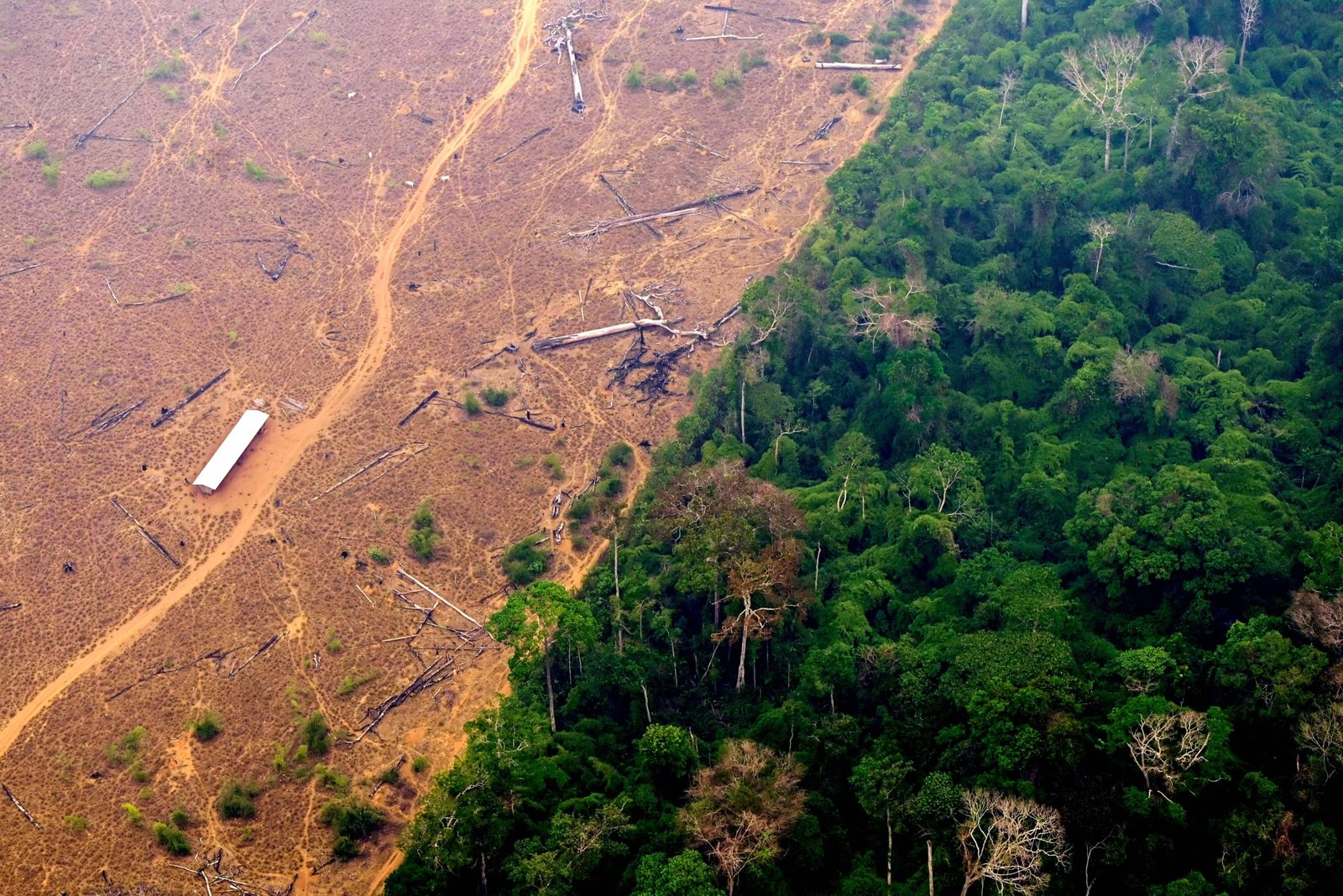Tropical forests play a critical role in combating global warming by absorbing greenhouse gases, yet they bear the brunt of over 96% of human-induced deforestation worldwide.
Tropical forests around the world continued to vanish at an alarming rate in 2023, a trend that severely threatens the ambitious goal of ending deforestation by 2030, according to new research conducted by Global Forest Watch. Despite slight decreases in total tree loss, human-driven deforestation persists, driven by agriculture, commodity extraction, and urban expansion.
Last year witnessed the disappearance of the equivalent of ten football pitches of tropical forests every minute, totaling a staggering 3.7 million hectares lost, as a result of both human activities and natural disasters. While Brazil and Colombia saw a significant slowdown in forest destruction, this progress was counteracted by alarming increases in countries like Bolivia, Nicaragua, and Laos.
“The world took two steps forward, two steps back when it comes to this past year’s forest loss,” remarked Mikaela Weisse, Director of Global Forest Watch at the World Resources Institute (WRI).
Tropical forests play a critical role in combating global warming by absorbing greenhouse gases, yet they bear the brunt of over 96% of human-induced deforestation worldwide, as reported by WRI.
Despite pledges from 145 countries, including major forest nations like Brazil, Indonesia, and the Democratic Republic of Congo, to halt and reverse forest loss and land degradation by 2030, current efforts fall woefully short. Analysts stress the need for a 10% reduction in deforestation annually to meet this ambitious target.
The goal, initially introduced as a voluntary commitment at COP26 in Glasgow, gained formal recognition in a COP decision during last December’s climate summit in Dubai. Weisse acknowledged the formidable challenge of achieving this goal, emphasizing the necessity of robust political will across all nations.
“I still find a lot of hope in the fact that Brazil, Colombia, and Indonesia have managed to massively curb their rates of forest loss in recent years,” added Weisse, highlighting the pivotal role of political determination in combatting deforestation.
In Brazil, President Luiz Lula da Silva’s return to office marked a significant shift in forest conservation efforts. Strengthened law enforcement measures, revocation of anti-environmental policies, and extended Indigenous rights contributed to a more than one-third reduction in forest loss, reaching the lowest levels since 2015.
Brazil aims to prioritize forest protection at its upcoming climate summit in 2025, set to be held in Belém, situated at the gateway to the Amazon rainforest. Marina Silva, Minister for the Environment and Climate Change, emphasized the symbolic significance of hosting COP30 in the heart of the forest.
Colombia also witnessed a notable decline in tree loss, attributed to policies implemented by President Gustavo Petro. However, positive strides in Brazil and Colombia were offset by alarming spikes in deforestation elsewhere.
Bolivia saw record-breaking levels of forest loss for the third consecutive year, driven by unchecked expansion of soybean and beef production, exacerbated by severe wildfires. Similarly, Nicaragua and Laos experienced dramatic upticks in deforestation, attributed to governmental disregard for forest preservation and unchecked agricultural expansion, respectively.
Efforts to combat deforestation must extend beyond political will, according to Weisse. Financial incentives, such as carbon credits, have been proposed as a means to make forest conservation economically viable. However, concerns over the credibility and efficacy of such schemes persist.
Regulatory measures are also being implemented to curb deforestation-linked commodities. In the European Union, stringent regulations requiring firms to prove that commodities like beef and soy are not linked to deforestation are set to be enforced, despite opposition from commodities-producing countries like Indonesia.
As the global community grapples with the urgency of halting deforestation, the latest research underscores the critical need for concerted international action to protect the world’s vital tropical forests.
